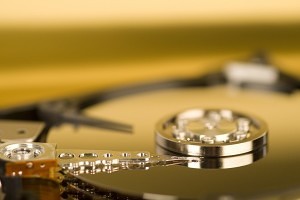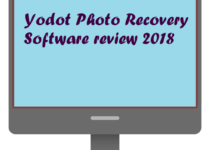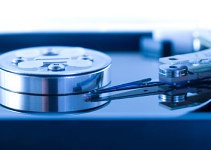 A laptop that starts to slow down after only a few weeks or months of usage is one of the most frustrating things you can experience when it comes to technology and gadgets.
A laptop that starts to slow down after only a few weeks or months of usage is one of the most frustrating things you can experience when it comes to technology and gadgets.
It’s hard to understand how a laptop can have such poor performance when it has a powerful Intel Core i5 or i7 processor and when the memory has been upgraded to 8GB or even 16GB. The mystery of a new laptop that is not working as it should, in spite of its top grade specs can be solved if you pay attention to the hard drive since it is the most likely culprit.
The majority of laptops available these days use a 5400RPM hard drive and unfortunately, this option has a tendency to slow down no matter what brand it is, or what capacity it offers. Gaming laptops and Ultrabooks are not affected by this issue but other consumer-quality devices may not escape it.
In order to get fast performance from your laptop, it’s important that the processor, the memory and the storage drive are at the same level of speed and capacity. If one of the components is not delivering the quality and capacity of the others, your laptop will not be able to perform adequately.
What Can I Do?
The good news is that you can fix the problem by changing and upgrading your laptop’s hard drive to a more efficient one. You can replace the 5400RPM hard drive with a faster option like a 7200RPM hard drive, or a Solid State Drive (SSD), which will offer an exceptional experience.
We will compare these three drives to help you understand how a hard drive upgrade can dramatically improve your laptop’s performance.
5400 RPM Hard drive
With a 5400RPM hard drive you are likely to experience slowdowns particularly when completing tasks that demand a high capacity and that involve reading/writing in the hard drive such as browsing several windows in Firefox, gaming, compressing/decompressing files and editing high definition images in Photoshop or similar programs. This is because in average, 5400 RPM hard drives only support 100MB/s read/write speeds.
7200 RPM Hard Drive
A 7200RPM hard drive is an improvement over the 5400RPM, but it is not considerably faster. In general, you can expect a read speed of about 128MB/s and a write speed of 120MB/s.
One of the most recognized options available in this category is the Western Digital 750 GB Black SATA III 7200 RPM 16 MB Cache Notebook Hard Drive (WD7500BPKX), which is available for under $70 at Amazon.
With a 7200 RPM drive you will be able to get better performance, although it is not the fastest option.
Solid State Hybrid Drives (SSHD)
Solid State Hybrid Drives, or SSHD, are hard drives that include a flash chip. They are another option that combines great speed and large capacity. While they are not as fast as SSDs (below), they provide a similar speed and in terms of capacity they are at the same level as mechanical drives.
The Seagate Solid State Hybrid Drive (STBD1000400) is a hybrid drive that offers 8GB SLC flash for just over $100.
Another good choice in this category is the WD Black2 Dual Drive (WD1001X06XDTL) that is available for around $220.
Hybrid drives are overall faster than 7200RPM drives. However, if you are looking for an option that offers truly impressive speed, you should go for a full SSD drive.
Solid State Drive (SSD)
For exceptional speed the best solution is a Solid State Drive which offers faster boot up and resume time. You can expect higher read/write speeds from an SSD compared to both traditional and hybrid hard drives.
Even an average Solid State Drive can offer write speeds of over 300MB/s and read speeds of up to 450MB/s.
You’ll notice that these types of hard drives don’t have the “RPM” notation. RPM stands for revolutions per minute because traditional hard drives have spinning platters that spin underneath the read head whereas solid state, or flash memory, doesn’t have any moving parts.
There are some models that also offer security for your data thanks to AES hardware-based encryption.
Some of the most remarkable devices in this category are the SanDisk Extreme II 120GB (SDSSDXP-120G-G25) (price starts at $67, but this would only get you the 120 GB version) and the SanDisk Extreme PRO 480GB SATA (SDSSDXPS-480G-G25)
, available from $200 for the 480GB version.
SSDs can be quite expensive compared to a hard drive and their price increases considerably if you want to get a higher capacity unit. However, they can make a big difference on your computer’s performance.
Conclusion
Solid State Drives stand out for the impressive speed that they offer and they are the best solution if you are looking for top-notch performance for your laptop. Keep in mind that SSDs usually have a smaller storage capacity and if you want an option that offers 750GB or 1TB, you should be prepared to pay a high price. However, if your budget doesn’t allow for an SSD, you can rely on a Solid State Hybrid Drive or a good 7200 RPM drive to speed up your computer.
Updated: 10/21/2015



